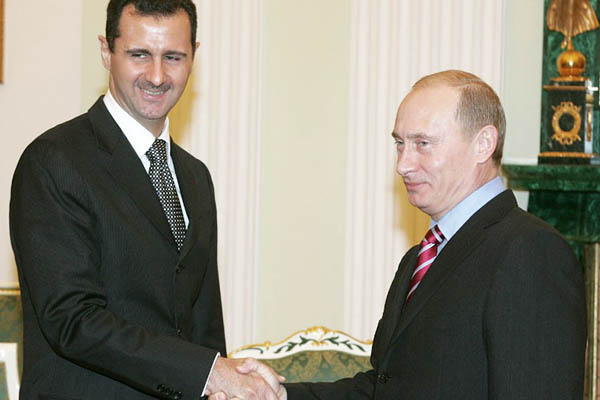
File Photo. Sergei Karpukhin—AFP
Over 50 clerics urge Sunni nations to unite in helping rebels against Bashar al-Assad and I.S. extremists.
More than 50 Saudi clerics on Tuesday called for Islamic states to militarily back rebels against the “Western-Russian alliance” in Syria, a week after Moscow’s warplanes began airstrikes there.
“The mujahideen… are defending the entire ummah. Trust them and give them moral, financial, military and political support,” said a statement signed by 55 Saudi clerics speaking out against the “crusader alliance.”
Russian warplanes have been conducting raids in Syria since last Wednesday. Moscow insists it is attacking only Islamic State group militants. But the United States Pentagon says Russian jets have targeted other rebel groups in order to support the regime of Syrian President Bashar al-Assad.
Saudi Arabia and other Gulf states have provided funds and weapons for rebels battling Assad. Gulf states also belong to a U.S.-led military coalition bombing I.S. targets in Syria since last year.
Thousands of foreign fighters, including from Saudi Arabia and other Arab states, have joined the jihadist I.S. which has seized large parts of Syria and Iraq. The group has carried out beheadings, crucifixions and other atrocities.
In their statement, the Saudi clerics accused Western nations of failing to protect the Syrian people. They called on Saudi Arabia and other Sunni countries to guard Syria “from the influence of the Russians and the Persians,” a reference to Riyadh’s regional rival Iran.
The Saudi system is based upon an alliance between clerics and the ruling family, but foreign policy and political matters are left to the politicians. Riyadh has not commented officially on the Russian bombing.
Just hours before Moscow began its airstrikes, Saudi Foreign Minister Adel al-Jubeir dismissed Russia’s call for a coalition to defend Assad against I.S. as a “non-starter.” He warned that other countries would step up support for rebels from Syria’s moderate opposition, leaving Assad with no choice but to resign or face what he called the “military option.”
He spoke of only two possible outcomes for a settlement in Syria, saying a transitional council reached through a political process would be the “preferred option.” A second, military alternative, “could be a more lengthy process and a more destructive process, but the choice is entirely that of Bashar al-Assad,” Jubeir said.
He also described Tehran as an “occupying power” in Syria and accused it of fomenting terrorism and extremism across the region.
